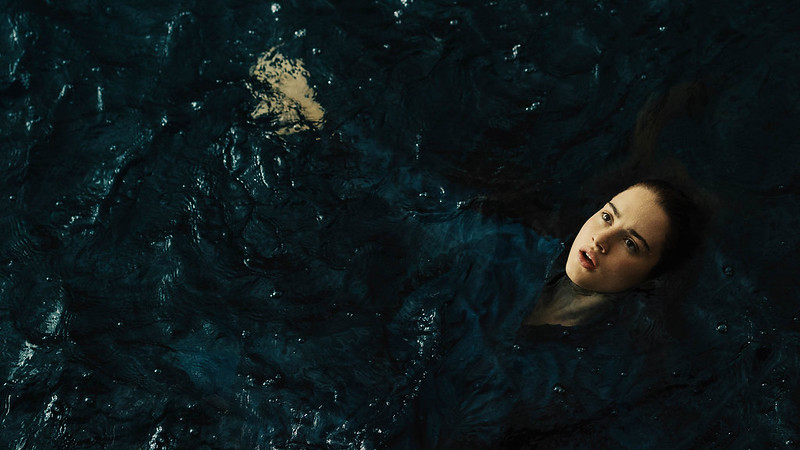As a young woman entering her adulthood, Anastasia should have her whole life ahead of her. Instead, she’s stuck in a dead-end job in a two-bit town, where her loathsome boss regularly berates and belittles her. After it is strongly suggested that the verbal abuse spills over into physical (and perhaps even sexual), Ana’s fragile mental state reaches breaking point in perfect synchronicity with a tempestuous storm outside. An explosive power outage and a mysterious call of “Mayday” lead Ana to find answers (or perhaps an escape) inside the spacious kitchen ovens of the venue where she works.
But instead of succumbing to suicide, Ana instead finds herself transported into a bottomless ocean and washed up on the craggy shores of an island. She’s soon greeted by Marsha, a bolshy militaristic type who explains that the realm they now inhabit is a war-torn one and Ana is the perfect sharpshooter that she and her lieutenants Gertrude and Bea have been waiting for. The enemy? Men, of course. The females use their feminine wiles and the same distress call that snagged Ana to lure whole squadrons of males to their doom, acting like the Sirens of Greek mythology in a WWII setting.
Indeed, the fantasy land in which Ana finds herself has much of Homer’s Odyssey about it, with lashings of Peter Pan and Lord of the Flies thrown in for good measure. It’s no accident that those stories involve predominantly male characters, but here the shoe is most definitely on the other foot. There are plenty of other clues to the film’s feminist leanings, including more subtle ones like the substitution of “Mike” for “Mary” in the phonetic alphabet – and more blunt ones, like Marsha’s insistence that “You’ve always been at war, you just never knew it.” Oh, and the fact that men die in their droves is another clue, as well.
But it’s not all just about bashing the patriarchy. There is also the idea that the sisterhood of the women and the natural beauty of the idyllic surroundings they find themselves in can act as balms for the wounds they each have sustained and conduits through which their traumas can be processed. There is real value in such concepts and it’s a shame that they aren’t explored more organically or that the elevation of the female seemingly can’t be achieved without the indiscriminate extermination of the male. There is perhaps some backtracking on that stance towards the latter stages of the film, but it’s handled confusingly and discordantly enough to diminish its impact.
Indeed, that’s the principal issue of Mayday throughout. There’s plenty to admire here: striking visuals, a beautiful palette, excellent costumes and assured performances across the board, especially from Grace van Patten as Ana. Despite this, all of the characters (including Ana) are sketched so haphazardly that it’s difficult to get a real feeling behind what makes them tick. Similarly, the concepts being played with are interesting enough, but Ana’s final redemption is dealt with in a manner that feels slightly simplistic and unearned, thus undermining the weighty issues it grapples with as a result.
Besides the clumsiness of the resolution and the muddled nature of its message, Mayday also just hangs together in ungainly fashion. The metaphors work in theory, but in practice they’re so lightly detailed and so unfirmly formed that the rough edges of the script bump up against each other abrasively. What results is a film brimming with promise and bristling with the raw, intoxicating energy of the female – but one which sags some way short of its own potential due to over-simplication and under-execution.
Screened as part of Sundance Film Festival 2021
